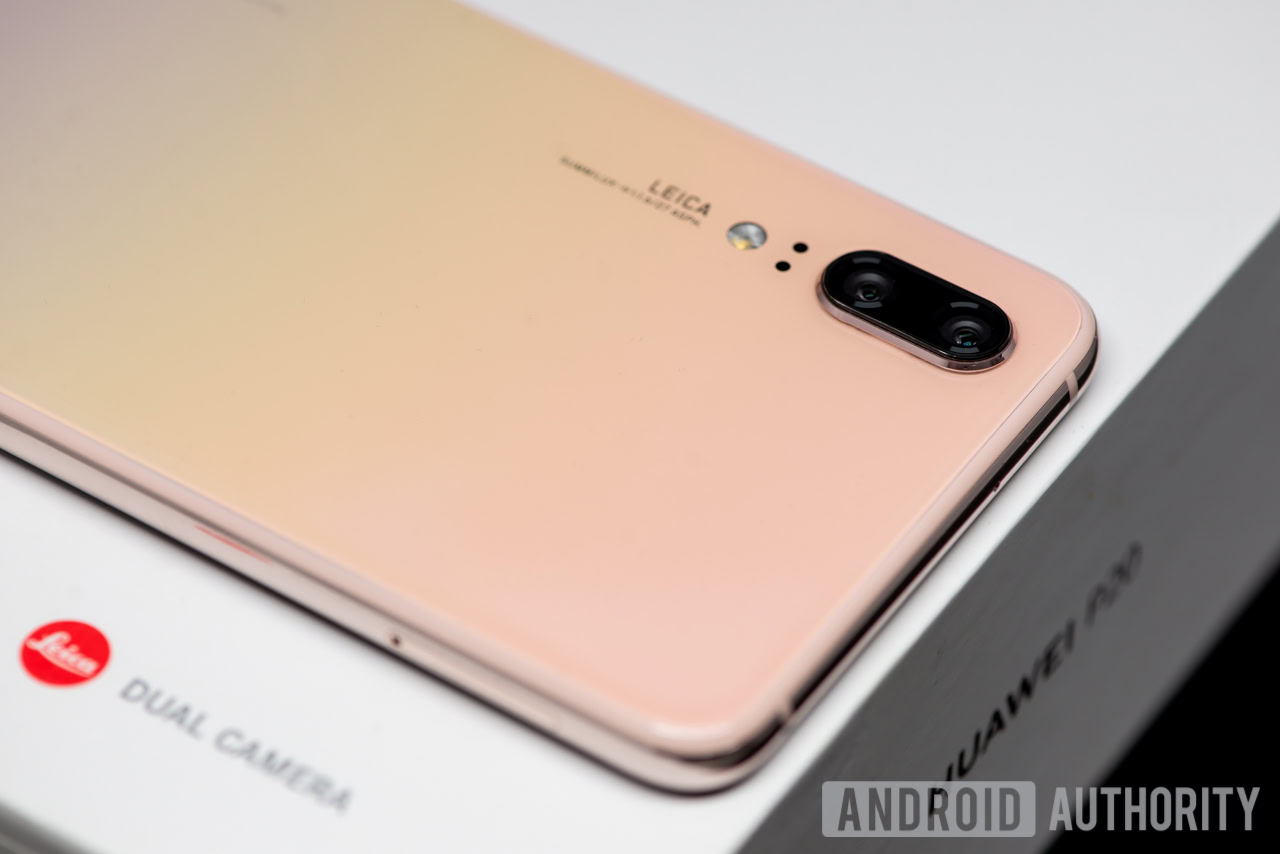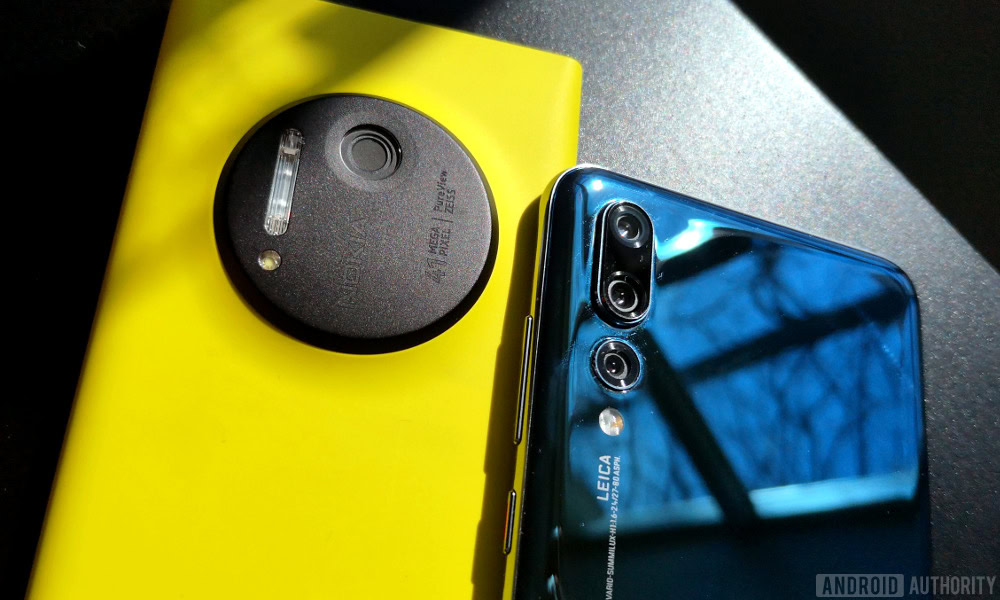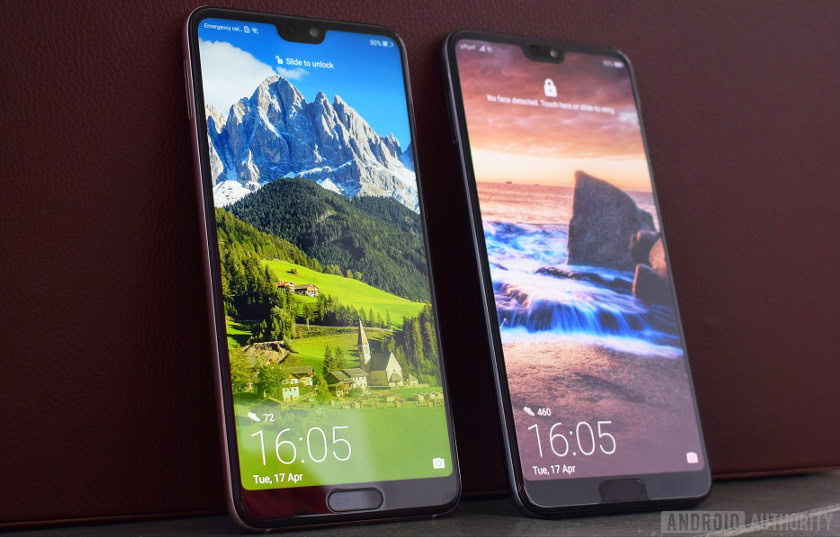Affiliate links on Android Authority may earn us a commission. Learn more.
HUAWEI P20 camera review
Published onMarch 30, 2019

Update (4/25): This post was originally published in July of 2018. Since then the HUAWEI P30 Pro has come out. While the P20 Pro is still a great phone for photographers, be sure to also check out the photo performance on HUAWEI’s latest!
The HUAWEI P20 Pro is known for having what many reviewers would consider the best camera in the smartphone market. This leaves more affordable variants is a tough spot, not only competing against every other phone out there, but also against their own line’s flagship.
Getting the HUAWEI P20 over the Pro version will save you hundreds, but you’ll have to sacrifice a few things. The P20’s screen shrinks from a 6.1-inch OLED to a 5.8-inch LCD. It has 4GB of RAM instead of six. It has a smaller 3,400mAh battery (compared to the Pro’s 4,000mAh) and a downgraded IP rating. Most importantly, the camera takes a hit.
We previously compared the HUAWEI P20 and the HUAWEI P20 Pro cameras. Those who need a deeper comparison between the two phones can hit the link below.


Can the HUAWEI P20 take a photo to save its life? If its bigger, tougher brother didn’t exist, would it be a good camera phone for its price? That is what we are here to find out. Let’s forget about the King of smartphone cameras for a while and judge the HUAWEI P20 on its own merits.
HUAWEI P20 camera specs
Rear cameras:
- 12MP RGB sensor with an f/1.8 aperture, 1.55µm
- 20MP monochrome sensor with an f/1.6 aperture
- Dual-LED flash
- PDAF+CAF+Laser+Depth auto focus
- OIS
- 4K at 30fps, 1080p at 30fps (18:90), 1080p at 30 or 60fps, 720p at 30fps
- Shooting modes: Aperture, Night, Portrait, Photo, Video, Pro, Slow-mo, Panorama, Monochrome, Light painting, HDR, Time-lapse, Filter, 3D panorama, Watermark, Document scan, Moving picture, Vivid colors, Smooth colors, 2X zoom
- You can also download more modes.
Front camera:
- 24MP sensor with an f/2.0 aperture
- Fixed focus
- 720p at 30fps
The HUAWEI P20 lacks the mean 40MP main sensor and 8MP telephoto shooter of the Pro version, but it’s hardly lackluster. It has a 12MP RGB sensor with an f/1.8 aperture, and the same secondary 20MP monochrome sensor with f/1.6 aperture as the Pro.
The HUAWEI P20 camera app
This is likely one of the coolest camera apps I have used. For starters, the app uses a smart system named Master AI to recognize the type of image you are shooting and automatically apply software enhancements that best fit the shot.
The HUAWEI P20 can recognize from 18 types of pictures: food, group, cat, natural, close-up, night, text, greenery, portrait, dog, fireworks, blue sky, flowers, stage, document, sunset, snow, waterfall, and beach. The app rarely failed to recognize any of these categories in real life, which left me rather impressed.
If you’re not interested in the Master AI feature, you can turn it off in the settings, too. Furthermore, the well-versed photographers among you will also love the camera app’s Pro Mode, which allows for manual shooting. You can modify the focus settings, ISO, shutter speed, EV, and white balance. To the right you can see a photo I took in Pro Mode, just so you can get a small taste of true photographic freedom.
The rest of the app is pretty straight forward, but it can be a bit crowded. Modes are always visible, then there are extra modes hidden in the “More” section. To add to the madness, onscreen options change in every single mode. It is a simple app to understand and get used to, but the UI isn’t the cleanest.
The settings are pretty extensive, so advanced photographers will like the kind of freedom this app provides. After all, it is the same app used for the best smartphone camera in the world. It should be able to do a lot!
- Ease of use: 8/10
- Intuitiveness: 6/10
- Features: 10/10
- Advanced Settings: 10/10
Score: 8.5/10
Daylight
We took the HUAWEI P20 on a quick trip to Tijuana, where there was plenty of interesting stuff to capture. On the first image the camera managed to recognize the blue skies, giving them a deeper blue hue and saturating the colors in the city’s sign. This makes for a very striking image, but it also looks a bit over-edited. Because the contrast increased, we also saw harsher shadows, which resulted in less detail in darker areas.
Read Next: HUAWEI P20 Pro: Taking a photo in complete darkness
On the second, the camera recognized the face in the painted heart and went into portrait mode. This was an accident, but the image turned out great. The colors are still vibrant, the sky is plenty blue, and that bokeh effect really brings the focus to the subject. There’s a harsh reflection on the left side of the heart, which means the HUAWEI P20 camera wasn’t the best at handling dynamic range, but in direct sunlight it’s hard to blame it.
Overall, what we looked for in daylight photos is good color reproduction, accurate white balance, and good detail. The HUAWEI P20 did a good job in all three categories, even if it over saturated colors a bit. It’s something many of you like, and we can’t deny it makes for a more dramatic effect.
Score: 8.5/10
Color
There’s nothing better than some traditional alebrijes and Mexican toys to portray color. Artisans really get playful with these adornments, making for lively decor and good color test shots.
Because we were indoors in soft light, we can see a warmer color palate here, especially in the first image. The white balance is a bit off, but it was in real life too. The yellow, soft, artificial light is accurately portrayed. As for color, there is plenty of contrast, vibrant hues, and good detail.
We do have to mention the HUAWEI P20 can be a little bokeh happy. Though the effect may give off a “pro” look, it is not always the right choice. We wish it caught more details in the toys to the back, in the first photo. One can always get rid of portrait mode, but constantly fighting it off can be annoying. Especially if you are selective about your blurry backgrounds.
Regardless, the HUAWEI P20 did create some fun shots with plenty of texture, vibrant colors, and good contrast — the trifecta for a good color image.
Score: 9/10
Detail
If there’s a department in which the HUAWEI P20 definitely loses to the P20 Pro, it’s this one.
The sensor and amount of megapixels typically get credit when capturing detail. That massive 40MP main shooter in the HUAWEI P20 Pro obviously creates a bigger image than the HUAWEI P20’s 12MP primary camera. This means the further you zoom in on HUAWEI P20 images, the more quality deteriorates. In addition, we can see some softening, likely due to the gentle lighting. This makes it a less noisy photo, but also a less detailed one.
It’s got a good amount of detail until you start pixel-peeping. The minute details are what separates winners from losers in a contest, though, so it’s important to bring up.
Score: 7/10
Landscape
This is the U.S.-Mexico border’s furthest west area: The famous spot where the fence extends right into the water. It is an iconic place and home of many debates, so we had to capture it.
Because landscape shots are all about details, we also found some defects here. Zooming in hurt the detail, but the photo was also a bit over-sharpened, thanks to the faraway people in the first photo. However, it is still a good photo, with great colors, good exposure, and a bright blue sky.
In the second image, the Master AI was adamant on not going wide. I guess it figured the sea made for too much dead space or something. Regardless, I wanted to see how it handled a landscape with the sun in the background, and it wasn’t the best. There could be more detail in the shade, a bluer sky, and a more evenly exposed frame. The sun threw the HUAWEI P20 camera off.
Things are looking much prettier and detailed in the other shots, when facing away from the sun. That always helps, and the third shot happens to be a pretty good one.
Score: 7/10
Portrait mode
Portrait mode is tricky. Most phones tend to have occasional issues figuring out what to blur.
Like many others, the HUAWEI P20 uses multiple lenses to determine distance and figure out what is in the background and foreground, in relation to the subject. It then keeps the subject in focus and blurs out the rest. The system doesn’t always do an amazing job, often making photos look like my first grade color books (I was bad at staying within the lines). This is especially an issue along the edges of the head, where hair can really throw off the camera.
We can see that effect in the first image, where the subject’s hair seems slightly outlined by a thin line of focused background.
Despite this, I have to say the HUAWEI P20 actually did a better job in portrait mode than most other phones I have tested. The errors are small and nearly unnoticeable to the untrained eye. I am not a fan of portrait mode, but I found it worked well overall. It deserves a good grade for that alone.
Score: 9.5/10
HDR
High Dynamic Range (HDR) is used to evenly expose a frame with multiple levels of light. Traditionally it was done by mixing multiple photos taken at different exposure levels. The end result was an image with reduced highlights, increased shadows, and an even exposure.
Different phones handle HDR in varying manners — some are better than others. The whole point of the HUAWEI P20 is to leave a lot of the decisions to the camera app, so we just had to let the camera find out when it was time to activate HDR. It seems like the phone missed the HDR opportunity in the second image, where shadows are harsher and show little detail. The pizza still gets enough detail thanks to the filtering sunlight, but that’s it.
In the first photo we can see more signs of HDR manipulation. The heart displays plenty of color and detail, even though it looked nearly black against the harsh sunlight in real life. We have certainly seen phones do a better job at HDR shots, though. This is probably not the HUAWEI P20’s strength, but it is pretty alright at it — assuming it actually activates HDR when you want it.
The P20 did a fairly good job with the last two photos. The contrast in lighting in the frappe photo was quite harsh in real life, so we have to give it to the HUAWEI sensor for being able to get the shot.
Score: 8/10
Food
The HUAWEI P20 goes into Food Mode whenever it sees something yummy in its viewfinder, and boy are we satisfied with the results. Already colorful Mexican food is taken to another level thanks to the added contrast and saturated hues. The food looks delicious, even if a bit over-softened, which gets rid of some close-up details. Regardless, it seems HUAWEI found the right balance with Food Mode.
Though some detail is lost in the softening, there is still plenty you can see in the vegetables and the fried dough. Not to mention the mat, which has plenty of detail to appreciate. The photo is also well exposed and white balance is accurate to the setting, making these great Instagram material.
Score: 10/10
Lowlight
The HUAWEI P20 takes some beautiful night shots. It is hardly thanks to the hardware, though. Zooming into the people in the first image reveals an amount of over-softening that makes them look like a product of Monet. They became blotches of color.
At least the picture looks great from afar. Colors are gorgeous, there is no sign of digital noise, and the shot is perfectly exposed. The other photos show the same effects, but at least they are well exposed and look great.
Score: 9/10
Selfie
In selfies we see the same pros and cons as the rest of the scenarios. The images look great at first, but start digging in things will stick out. The HUAWEI P20 does a great job exposing these shots, getting the right white balance, and capturing color, but the processing can be a bit too much at times.
In these selfies we can see excessive softening. This makes skin smoother, an effect some people definitely like, but you can definitely tell it’s not real. Pretty images are pretty images, though!
Score: 7.5/10
Monochrome
The HUAWEI P20 shares a special feature with its bigger brother — it has a dedicated monochrome sensor. This sensor essentially determines where objects are in Portrait Mode, but it also takes some great black and white photos.
Camera sensors capture light with an array of photosites. In a color sensor, these photosites only allow one of the three main colors (red, green, and blue) to enter. Alternatively, monochrome photosites allow all light to enter as a shade of gray or black. This makes for a crisper image with much more detail than if you just convert a color photo to black and white.
This is something we can definitely see in Monochrome Mode. Look closer and you can better appreciate textures and smaller details. Because the phone is not trying to modify the image with color enhancements, images also have a more natural appearance.
Score: 9/10
Video
Optical image stabilization didn’t help very much here. Of course, it is hard to stabilize a video when walking, but then things were still quite shaky when I stood still. What we can say about this clip is that saturated colors and the deep blue sky do translate from images to video.
The phone also had a hard time adjusting to changing exposure, which should be expected when looking straight into the sun. Overall, the camera did very well. The HUAWEI P20 camera can take a very pretty video, but it over processes and needs a rather stable grip.
Score: 7.5/10
Conclusion

Overall score: 8.4/10
For 680 euros (~$793) you get a phone with high-end features and a camera that competes aggressively against its direct competitors. The highest of high-end phones — including the P20 Pro — are definitely a step above, though. Its bigger brother got a lot of hype for its amazing hardware and software combination, but the HUAWEI P20 clearly gets more help from software.
Without a doubt, the HUAWEI P20 takes some amazing shots, which at first sight can compete against the best of the best. However, it can’t capture the details as well as the industry leader. Pixel-peepers will probably opt for the HUAWEI P20 Pro if they want the best smartphone camera money can buy. Those who want to save the money will be very happy with the HUAWEI P20’s photos, as long as they don’t zoom in.